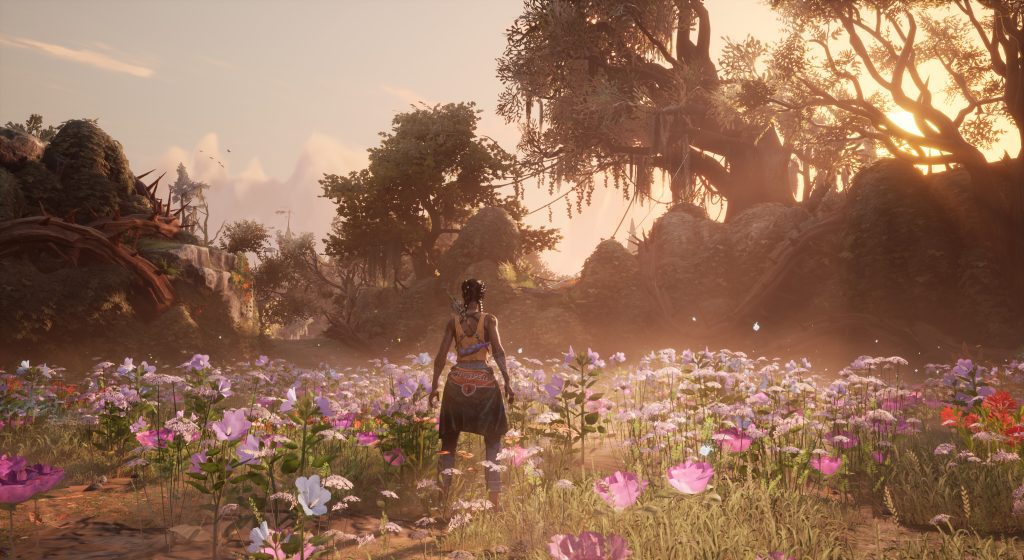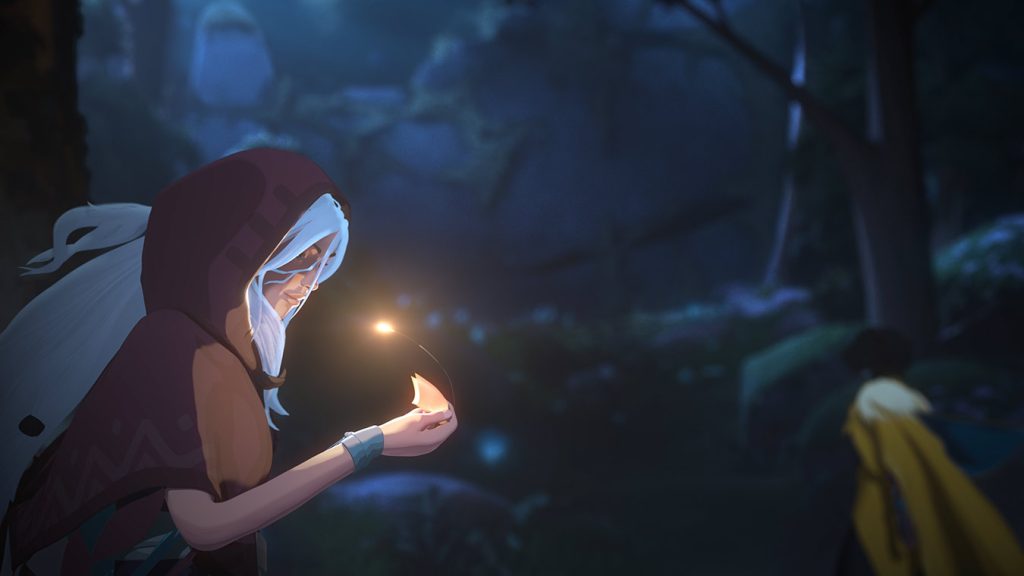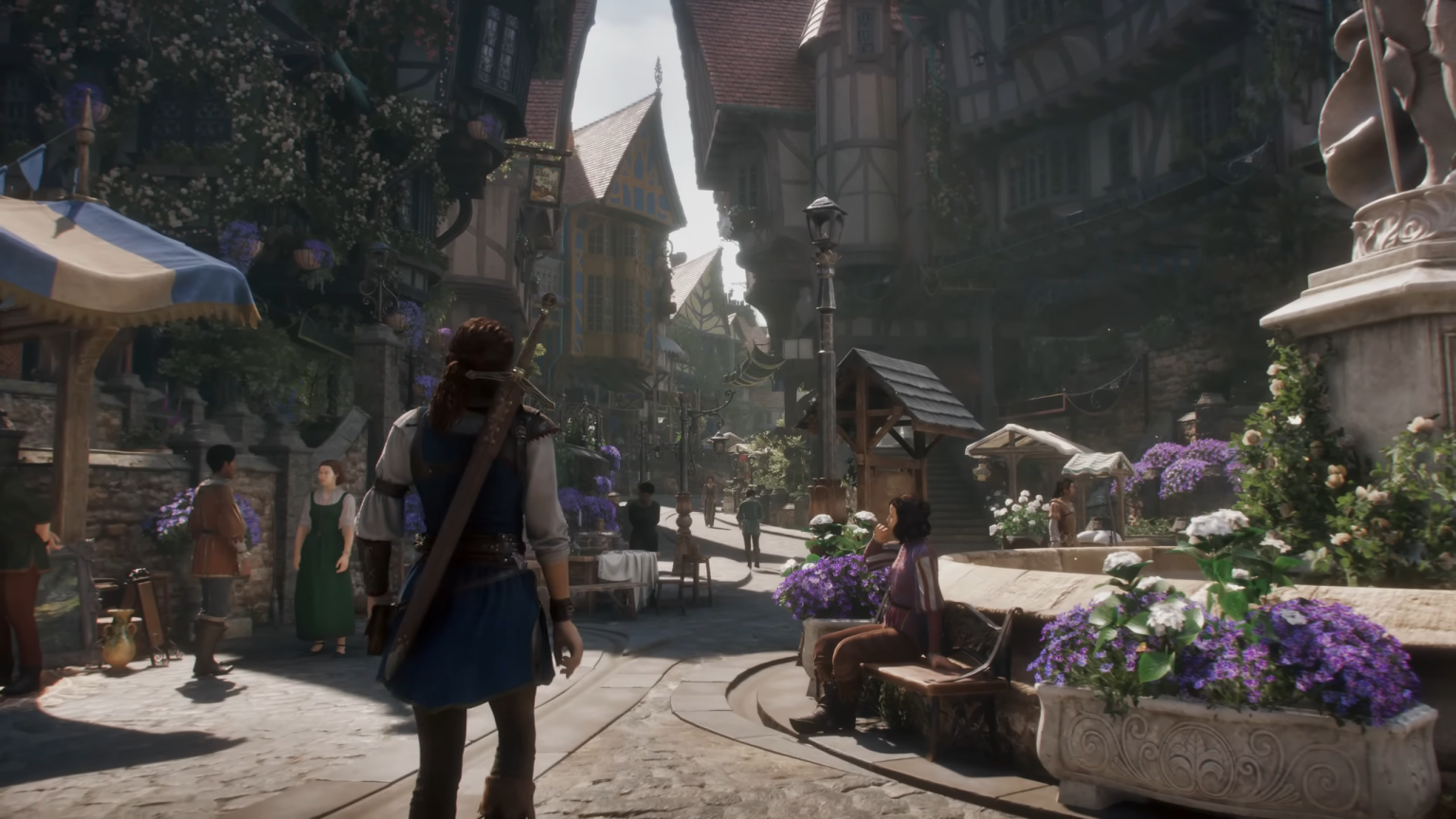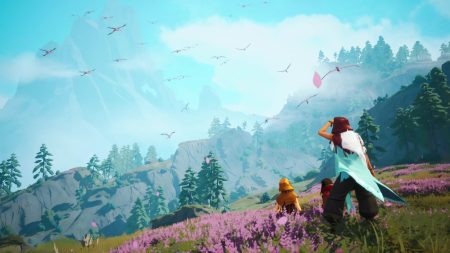Over the past few months, a half-written article has been sitting in the “drafts” section of our website. Inspired by a trio of games — co-op gem Split Fiction, the refreshingly succinct South of Midnight, and surprise GOTY frontrunner Clair Obscur: Expedition 33 — the op-ed delved into the state of modern game development. The goal: Extrapolate even the tiniest nuggets of wisdom after studios like Hazelight and Sandfall seemingly turned water into wine.
The piece was titled, “The Mid-Tier Game Is Back — and Microsoft Stands To Benefit the Most.” Now, in the wake of mass layoffs across Xbox Game Studios, I’m left to reflect on the 600+ words I’d written and be thankful I didn’t make much more progress than that. In the increasingly terminal reality that is 2025, things age fast. Terribly fast.

Believe… *Taps Sign*
I’ll let a few opening remarks from that piece set the mood:
For years, I have been a harsh Microsoft critic.
That’s not to say I’m a doomer. Each generation, I buy the latest Xbox like clockwork. When Microsoft announces acquisitions of studios like Bethesda and Blizzard, I try to think “What if?” before I think “Oh, no. More consolidation.” When Phil Spencer hops on a livestream to acknowledge missteps like Arkane’s Redfall and promise better days, I take him at face value. Every time Microsoft paints a new picture for the future of Xbox, I channel my inner Ted Lasso and believe.
But my faith only extends so far. From infamous cancellations like Scalebound to more recent disappointments like Starfield, Microsoft has struggled to produce consistently great AAA games for well over a decade. And with murmurs of development struggles for Perfect Dark and an outright reboot of Rare’s Everwild, it doesn’t seem like that pipeline hell is easing anytime soon.
As we await Team Xbox’s next killer app, Microsoft gamers have gotten cozy to the idea that maybe, just maybe, that Big Mind-Blowing Thing isn’t coming out. Add in the May 2024 culling of several studios — most notably, Tango Gameworks, who by all accounts did everything right with Hi-Fi Rush but still couldn’t appease shareholders — and it’s hard not to feel like Microsoft and consumer expectations will forever be misaligned.
After recapping the rocky history of the Xbox brand, I ended on a positive note:
Fast-forward to 2025, however, and the energy seems to have shifted. Not only has Microsoft seen some recent wins with its internal teams and third-party partners, but it’s found this groove by dreaming smaller, not bigger.
My thesis, at the time, was clear. Fans of Xbox — particularly, fans of Game Pass — were eating good. From Blue Prince to Clair Obscur, Avowed to Doom: The Dark Ages, we’d been getting solid to stellar releases on a monthly if not weekly cadence. While several of these titles were major first-party releases, what struck me then was how many of these great games were from smaller, relatively green studios.

Blue Prince may not have sold oodles, and Clair Obscur’s development largely remains a black box (the only hint we have is that it cost less than Mirror’s Edge or Vanquish). Nevertheless, games like these are impressive success stories. They came out of nowhere, launched to widespread acclaim, and became instantly accessible to tens of millions via Game Pass. No development drama. No hyperbolic marketing or Molyneux-esque promises. Just good, honest games in players’ hands.
No development drama. No hyperbolic marketing or Molyneux-esque promises. Just good, honest games in players’ hands.
This model of realistic expectation-setting has always existed in the indie space (Silksong mania aside). To see it employed by the likes of Clair Obscur and Split Fiction, though, was a beautiful reminder that great games can come in small, sincere packages.
For a few months, I believed Microsoft was capable of that same mentality. South of Midnight showed a quiet restraint that I found profoundly powerful. Avowed drew inevitable comparisons to Skyrim, but developer Obsidian, to its credit, largely attempted to check those expectations in the lead-up to launch. Maybe, just maybe, Xbox could focus on smaller-scale games that don’t require selling 10+ million copies to succeed.
I believed that until yesterday, when those hopes were likely dashed for good.

Popping the AAA Bubble
As of writing, here are the studios and projects we know have been impacted by the recent layoffs:
- The Initiative — entire team shuttered; Perfect Dark canceled (via Windows Central)
- Turn 10 Studios (Forza Motorsport) — 50% of the team laid off (via Bloomberg)
- Rare (Sea of Thieves) — unconfirmed number of layoffs; Everwild canceled (via VGC)
- Bethesda (Starfield) — unconfirmed number of layoffs (via IGN)
- ZeniMax Online Studios (The Elder Scrolls Online) — unannounced MMO canceled (via Bloomberg)
- Raven Software (Black Ops 7) — unconfirmed number of layoffs (via Bloomberg, Insider Gaming)
- Sledgehammer Games (Modern Warfare III) — unconfirmed number of layoffs (via Insider Gaming)
- Blizzard Entertainment (Warcraft Rumble) — unconfirmed number of layoffs (via Aftermath)
- Undead Labs (State of Decay 3) — unconfirmed number of layoffs (via Kotaku)
- King (Candy Crush) — about 200 employees, or 10% of staff, laid off (via Bloomberg)
- Xbox User Research — nearly 50% of the team laid off (via The Verge)
This is far from a comprehensive list, and I imagine we’ll receive more clarity on the number of developers affected in the coming days. Just based on what’s been reported, though, it’s hard to feel optimistic about the future of Microsoft’s gaming division. It’s also worth noting that Microsoft — among other massive tech giants these days — is laying off its staff (and not just gaming staff) as part of a massive $80 billion investment in generative AI.
The writing was on the wall, I suppose; I just wasn’t willing to read it. When conglomerates like Microsoft or Tencent drop billions to ramp up in the ever-growing AAA arms race, only to turn around and cull entire teams “for continued success in future years” (as Phil Spencer put it yesterday), you know there’s a problem. When a studio like Insomniac invests $300 million into a game, sells 11 million copies, yet still finds itself besieged by layoffs, you know there’s a fucking problem.
It’s death on all sides. Production costs are exploding, price tags are ballooning ($80 video games!!), and developers caught in the middle are getting crunched. The gears in the apparatus aren’t chugging along like the shareholders in the boardroom ordained, and we’re seeing the delta in terms of greedier monetization models, crueler layoffs, and weaker creative output.
The gears in the apparatus aren’t chugging along like the shareholders ordained, and we’re seeing the delta.
This isn’t a problem unique to Microsoft; it’s systemic to this industry. That said, it’s Microsoft that has pushed the limits on this experiment. Spencer, with Satya Nadella’s blessing, fucked around with these acquisitions and is now finding out just how hard it is to keep everything running smoothly.
Since Spencer became head of Xbox in 2014, he’s taken to the stage for a nauseating number of game reveals and studio unveilings. Scalebound, in partnership with the folks at Platinum! Everwild, a brand-new IP from our friends at Rare! Perfect Dark, a “AAAA” game led by a new all-star team!
Far more noticeable, however, have been the failures — and the questions left in the aftermath. Why greenlight so many games, only to shutter them? Why accumulate such great talent, only to stymie their production? Where on Earth is Fable, or the next Halo?

What Comes Next?
Look, I know it’s easy to critique Microsoft. I also know there’s nuance to games like Everwild or Perfect Dark that simply don’t pan out. As Bloomberg’s Jason Schreier covers in his books, the act of releasing a finished game — let alone one that’s polished and fun to play — is a miracle in and of itself. I don’t believe Phil Spencer wakes up eager to close a studio, nor do I believe all of Xbox’s failures are his fault.
But make no mistake: The Xbox brand is forever tarnished in the wake of layoffs like these. Between the success of Game Pass and partnerships with third-party manufacturers like ASUS, it’s clear Xbox is moving further away from the hardware it owes its name to. With an increasing reliance on subscriptions and cloud-based gaming, all eyes are on one thing with Microsoft, and that’s the quality of the games its provides.
Two months ago, I would have argued that Microsoft had finally cracked the code. That it understood the value of realistic expectations — for the good of its customers, its developers, and its shareholders alike. After yesterday’s news, it’s time to temper those expectations for good.
David is the founder of The Punished Backlog. He has a problem finishing games he starts.
Just beat: Yakuza 0, Sleeping Dogs.
Working on: Demon Tides, Ys VIII.
Can't wait for: GTA VI.
Follow David on Twitter at @David_Silbert to keep up to date with all things The Punished Backlog.










